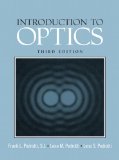STARKFX.com Book Club Reading List

My name is Troy Stark and these are the books that make up my personal reading list. I only recommend books I have personally read, enjoyed reading and believe to be important enough to spend your time reading. Those last two requirements usually cut the list down quite a bit. Often, enjoyable books are not about subjects of any importance, and just as often, books on important topics are not pleasurable to read. On this list, I may slip on occasion if the book is either too fun to ignore or too important to ignore, but, for the most part, this list only shows the ones that are both fun and important.
|
This book was absolutely wonderful. Spanning nearly the entire time of life on earth, it describes beautifully the vastly different worlds that have preceded us.... and, of course, ends with a little push suggesting we don't have to create the next world as quickly as we are doing today... yes the last chapter does mention our climate change crisis, but perfectly in context. |
|
|
My latest favorite (January 2012) is this book by Antonio Damasio (I like a lot of his books). The subject is how consciousness can arise as a physical process in the brain. The structures, processes, evolutionary pressures and even some of the essentially mathematical concepts required to understand how this subjective experience can be a physical process is described clearly and succinctly as possible. |
|
|
This is my latest favorite, July 2009. In Why Choose This Book? Read Montague presents a fascinating description of the research being done in cognitive neuroscience regarding decision making. More importantly, he presents a slightly new formulation of how the reality of scarce resources has lead to the evolution of computing systems that care. This has been the missing concept for some time- the thing that makes our thoughts different from the processing on a computer is that we care. Computers have no motivation for doing anything, but we do. This book is about why we care and how that might be modeled and studied. |
|
|
|
The Tipping Point This book is a must read for anyone that wants to understand the events that shape our world and how they do so. It is a smooth flowing, easy reading analyis of what goes into creating an impact on society. It will surprise you. Such little things add up so quickly to become a huge social phenomenon that predicting what will and what won't affect society is a little like chaos theory, but this book just might give you the insight you need to create that once in a lifetime chance to write history. |
|
Blink, The Power of Thinking Without Thinking Knowing how our brains process information, the cheats and shortcuts we take, as well as how effective those shortcuts can be and when to consider them sufficient or not can help anyone who wants to be informed about themselves. I Don't consider this a comprehensive or deep exploration, but it is a great introduction to how everyday experience is shaped by the actual function of our brains. There are a few interesting surprises here -or at least some different ways to look at very familiar experiences. |
|
|
|
Outliers This is the view a scientist would take of how success happens! It was a pleasure to read this smooth flowing book full of insight if you haven't spent any time studying these subjects before. There are some useful tidbits like: IQ is not a linear predictor of success -above a certain IQ, greater intelligence does not translate to greater success. The 10,000 hour rule was also a useful tidbit, suggesting that mastery takes a little talent and much more work. The references here show too much web based research for my taste, but it did introduce me to the literature on this topic- stuff I had not read before, and now find much more valuable than the usual self help and self development industry literature, which is nothing more than a form of entertainment. |
|
The Prism and the Pendulum by Robert P. Crease is a fun, detail filled tour of the people & motivations and history of some of the most beautiful experiments in science. This book explores the meaning of beauty and how scientific experimentation can be beautiful. I thoroughly enjoyed this light, yet informative read which re-connects humanity and science --- as if there was ever a disconnect. |
|
|
The Genius Engine discusses one of the most critical sciences of this century. |
|
|
|
The Canon Is a wonderful journey through the basics of science that everyone should be familiar with. Best of all, Natalie's personality shows through in every paragraph making this a fun trip. |
|
This was a FAVORITE of mine for a while. |
|
|
|
This is June 2006 and I have just read one of the most entertaining books you will ever find. It is called, “Stumbling on Happiness” by Daniel Gilbert. Gilbert is a Harvard college professor of psychology, and as you would expect from a Harvard professor, he is quick witted, well read, presents a clear thesis and defends it with style and substance. But, the best part is, this is a book you could read cover to cover in one sitting, just because it is so entertaining. Gilbert's personality, or the one you will see anyway, comes through wonderfully. The thesis: we are very lousy at guessing what will bring happiness. Explains alot don't you think? |
|
Maybe the greatest friendship in history, but certainly not a well known history. The implications of Einstein's work may have been worked out no better by anyone than Einstein's close friend in his latter years, Kurt Godel. |
|
|
There is a relatively new book (this is December 2005) that I am recommending. "The World is Flat" by Thomas Friedman is an excellent book with a great point of view on how we, as a nation, could not only survive economically but how we could thrive. It will take some extreme effort but if we have the vision of where we’re going, we can do it! |
|
|
One of my favorite books is this great work of political satire that is as relevant today as was when it was written. Jonathan Swift's "Gulliver's Travels" is extremely entertaining. Don't just read the first adventure with the Lilliputians, you should enjoy the whole book. It is great. (You may want to read it in private. It was rather embarrassing to be rolling on the floor with laughter in public.) |
|
|
|
Charles Freeman's "The Closing of the Western Mind, The Rise of Faith and the Fall of Reason" is a wonderful historic view of how authority became supreme over critical thinking. This is by far one of my favorites. |
|
Antonio Damasio's "Descartes' Error Emotion Reason, and the Human Brain" is quite entertaining and a great introduction to the latest thinking on cognitive neuroscience. |
|
|
Along the same lines, but also adding a good introduction to a great philosopher, Anotonio Damasio's "Looking for Spinoza, Joy, Sorrow, and the Feeling Brain" was another wonderful book. I really love Damasio's explanations of how we think and especially the concept of representations of our whole physical self being the basis for thought. |
|
|
"Guns, Germs, and Steel" discusses the Fates of Human Societies. Jared Diamond has presented a relatively deep overview of the development of our current and past human societies and their relationship to each other. |
|
|
A very interesting look at the system that creates professionals, "Disciplined Minds" by Jeff Schmidt is a well written essay presenting his view of how professionals are made and what they are made for. |
|
|
Howard Bloom's "The Lucifer Principle" describes human history from the point of view of evolution and natural selection as applied to ideas and societies. |
|
|
As far as political books go Thomas Sowell's "The Vision of the Annointed" is one of my favorites. |
|
|
|
"Evolution , the Triumph of an Idea" by Carl Zimmer is a beautifully illustrated, well written, entertaining introduction to evolution. It covers the concept from the time of Charles Darwin to modern times, describing what is known and what is not understood. This is fun reading! |
|
Steven Pinker's "The Blank Slate" shows the development of how we think about how we think. Subtitled "The Modern Denial of Human Nature" a main theme is that we have not given enough credit to our genes and the structure of our brains with regard to our personalities. Possibly a few more pages than it needed, but still great reading. |
|
|
|
A controversial book, "The Bell Curve" is worth reading. Herrnstein & Murray put alot of information in this book to back up their thesis. If you do get to this one, the first thing to do is read the first section of each chapter. This gives you the thesis and then you can go back and wade through the data they cite to back up their ideas. In a nutshell, inherent intelligence is emerging as a new societal discriminator. Bad or good, I don't know, but possible? I think they may be right. |
|
"Sync the Emerging Science of Spontaneous Order" by Steven Strogatz was a beautiful introduction a new mathematical and physical science concept. |
|
|
|
Ira B. Black M.D. wrote a very interesting book on the subject of Alzheimer's and other brain disorders. "The Dying of Enoch Wallace---Life, Death and the Changing Brain" is a human story in and a human and research story describing what is being learned about debilitating brain disease. |
|
I really enjoyed "The Origin of Consciousness in the Breakdown of the Bicameral Mind" by Julian Jaynes. It introduced an idea that was new to me. I would like to see the idea more fully developed, or to maybe understand why it can't be, but still, the book was a good read. |
|
|
James B. Stewart describes the financial world as it was rocked by Milken, Boesky, Siegel and others in "Den of Thieves" |
|
|
"The Science of Good and Evil" by Michael Shermer describes an atheistic view of morality. He argues that religion and God or gods are not necessary for, and perhaps form a lacking basis for morality. Instead, a stronger basis for morality can be found in human nature. |
|
|
"The Gifts of the Jews" by Thomas Cahill describes the legacy all humanity has inherited from a tribe of desert nomads. |
|
|
Thomas Cahill's "How the Irish Saved Civilization" is a great history story about the role of the Irish after the fall of Rome. |
|
|
"The Crisis of Islam" by Bernard Lewis is essential reading for understanding today's middle east. |
|
|
A short light read, just the right size for a weekend, “Nature’s Numbers” by Ian Stewart is both entertaining and thought provoking. |
|
 | Lasers - Siegman's book is the definitive classic on the subject. |  |
Introduction to Optics - Pedrotti & Pedrotti have written a very accessible book on optics. As a first introduction, this is an excellent choice. | ||
|---|---|---|---|---|---|
 |
Elements of Modern Optical Design - A clear description of the basics of optical design by Don O'Shea. Includes ray tracing, simple lens design and laser system design. |  |
Fundamentals of Photonics - Saleh's book is my favorite book on optics for its breadth and depth while still being quite clear. | ||
 |
Modern Optical Engineering - Warren J Smith's classic on optical design |  |
Thin Film Optical Filters - So you want to understand how to design coatings.... read on. | ||
 |
Modern Lens Design: A Resource Manual - Warren J Smith shows example after example of lens design solutions for various applications describing what makes these solutions so popular. |  |
Optical Shop Testing (Wiley Series in Pure and Applied Optics) - Malacara's book on optical testing is absolutely essential for the optical manufacturer or those who need to know what the manufacturer really sent them. | ||
 |
Polarized Light (Optical Engineering) - This will show you what you need to know about the effect of polarization in your optical system. |  |
Handbook of Optics, Volume IV - OK, I haven't actually read this entire book, but the articles I needed were there when I needed them. | ||
 |
Handbook of Optical Materials - This book is well worth the cost to have in your lab! |  |
Principles of Optics: Electromagnetic Theory of Propogation, Interference and Diffraction of Light - When it comes to understanding light, this is the book a physicist will turn to. | ||
 |
Building Electro-Optical Systems: Making It All Work |
 |
Photonics Rules of Thumb |
||
 |
Opto-Mechanical Systems Design (Optical Engineering) - Most popular and authoritative source available on opto-mechanical systems design guidelines |  |
Applied Optics and Optical Design - Covers the fundamental of geometrical and physical optics. "Indispensable" - Journal, Optical Society of America. |
